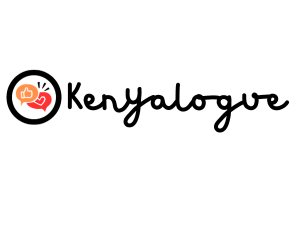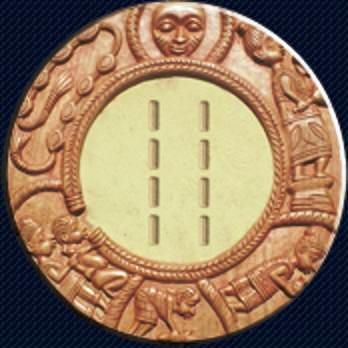The Ifa religion is one of Africa’s belief systems that have been around for millennia.
The Yoruba people from Nigeria, Togo, and Benin practice it.
The religion is not so different from those of other people across the globe.
There’s a god that is believed to run the universe. Under him are prophets that link god to human beings.
But there’s something unique about Ifa.
It has special principles that inform the daily lives of the followers of the religion.
One of them is Eji Ogbe.
Read on to learn more about what it is and what it means spiritually.
Meaning of Eji Ogbe
To better understand the meaning of Edji Ogbe, a short description of the Ifa concept is necessary.
In short, this is a religion or concept that uses divination to access metaphysical and scientific knowledge in the Odu Ifa (literary corpus).
Orunmila is the Grand Priest of the system as he’s believed to have invented and read the first 16 Odu to humans on earth. These refer to prophecy and foundational divinity.
The book or literal corpus has sixteen major books. Each is further broken into 16 alternatives or verses. Together they make up 256 Odu.
The corpus covers all circumstances, situations, consequences, and actions in human life.
Whatever answers one needs are found in the Odu Ifa.
Eji Ogbe or Ogbe Meji is the first one in the order of Odu Ifa. It is also the head of all the 16 major Odu Ifa.
Eji or meji in Yoruba means two. Ogbe means to overcome or illuminate.
When an Ifa priest known as Iyanifa or Babalawo throws Opele (the divining chain) and the Odu appears at both the left and right-hand sides, it means that the Eji or Meji is attached to the Odu.
Similarly, when Ogbe appears on both the right and left-hand sides, the result is referred to as Eji Ogbe or Ogbe Meji.
Eji Ogbe means a fountain of unlimited wisdom that carries the spirit through the challenges of life.
The principle is the perfect alignment with destiny.
Ifa believes that all destinies are spiritual and are linked to developing good character.
In Yoruba, a good character is called Iwa Pele. Therefore, Eji Ogbe helps an individual to get clarity on the necessity of good character.
When it appears during an Ifa session, a Babalawo can interpret it to mean a perfect alignment to one’s destiny and the necessity of a sacrifice.
The priest ideally reveals the kind of sacrifice to be given. The sacrifice is meant to overcome enemies that are against the person’s destiny.
It is believed that Eji Ogbe originates from Olodumare as it shows illumination from him.
Origin of Eji Ogbe
The story of Eji Ogbe is quite interesting. It is believed that it was the youngest of all the 16 major Odu Ifa. He was also the smallest.
All the Odus practically resided in heaven with the creator. However, there was a need for them to go to earth to perform specific functions.
A time came when Olodumare sent the sixteen Odu Ifa to the earth for their missions.
He called all sixteen of them for a meeting. First, he gave each one a cow and asked them to share it amongst themselves and come back to him after sixteen days. This, he did to choose a grand priest for Ifa’s mission on earth.
All of them reached home and made preparations on how to slaughter the cow and share the meat with the rest.
They decided that the smallest of them—Eji Ogbe—would go to the forest to get firewood, ingredients, and leaves for preparing the cow meat.
Sadly, the 15 Odu Ifas slaughtered the cow and shared it with each other leaving just the head for Eji Ogbe.
They despised the small-bodied Odu and decided that he was fit to only eat the head of the cow.
Little did they know they were pushing him to the top.
After the 16 days had passed, Olodumare called all the sixteen Odu Ifas and asked them how the cow had been shared. He specifically asked who got the head.
The Odus laughed loudly as they explained that Eji Ogbe had received the head as he was the youngest of the bunch.
Just like that, Olodumare gave the Grand Priest title to Eji Ogbe terming the rest of the Odus as greedy. The head is the king as it holds the body.
What Does It Mean When Eji Ogbe Appears To You?
Count yourself lucky if EJi Ogbe appears to you during an Ifa session.
It means that you have supernatural help in fighting life’s challenges.
You have access to the Grand Priest of Olodumare.
Even though he was small and despised, he was crowned the head of the Odu Ifa.
Granted, your life will be filled with all kinds of difficulties but if you sacrifice to Eji Ogbe the right way, you will be cleared of all misfortunes.
Eji Ogbe also signifies leadership or kingship for the person in question.
After all, the Odu is considered the head or king.
The individual likely carries the grace of leadership in them.
They will have a long, prosperous life—perhaps the longest in their lineage and have lots of wealth.
But enemies will arise from all sides and the person must sacrifice to Eji Ogbe to do away with the opposition.
Is Eje Ogbe Still At Work?
Before the colonial period, Africans didn’t know any other way of worship.
They hadn’t been introduced to the God of the Bible, Islam, or any other religion from other continents.
For Yoruba people, Ifa was pretty much all they practiced.
As such, people strongly believed in Eji Ogbe greatly.
Now, the number of believers has declined but there are some that have stuck to the roots.
Babalawos still exist. Ifa sessions still take place and Eji Ogbe is still believed to be at work like he did thousands of years ago.
The priests were taught the ways of the religion by their forefathers and still carry on with zeal and resilience.
You may also want to check: Aje Orisha: The Goddess of Wealth and Prosperity



